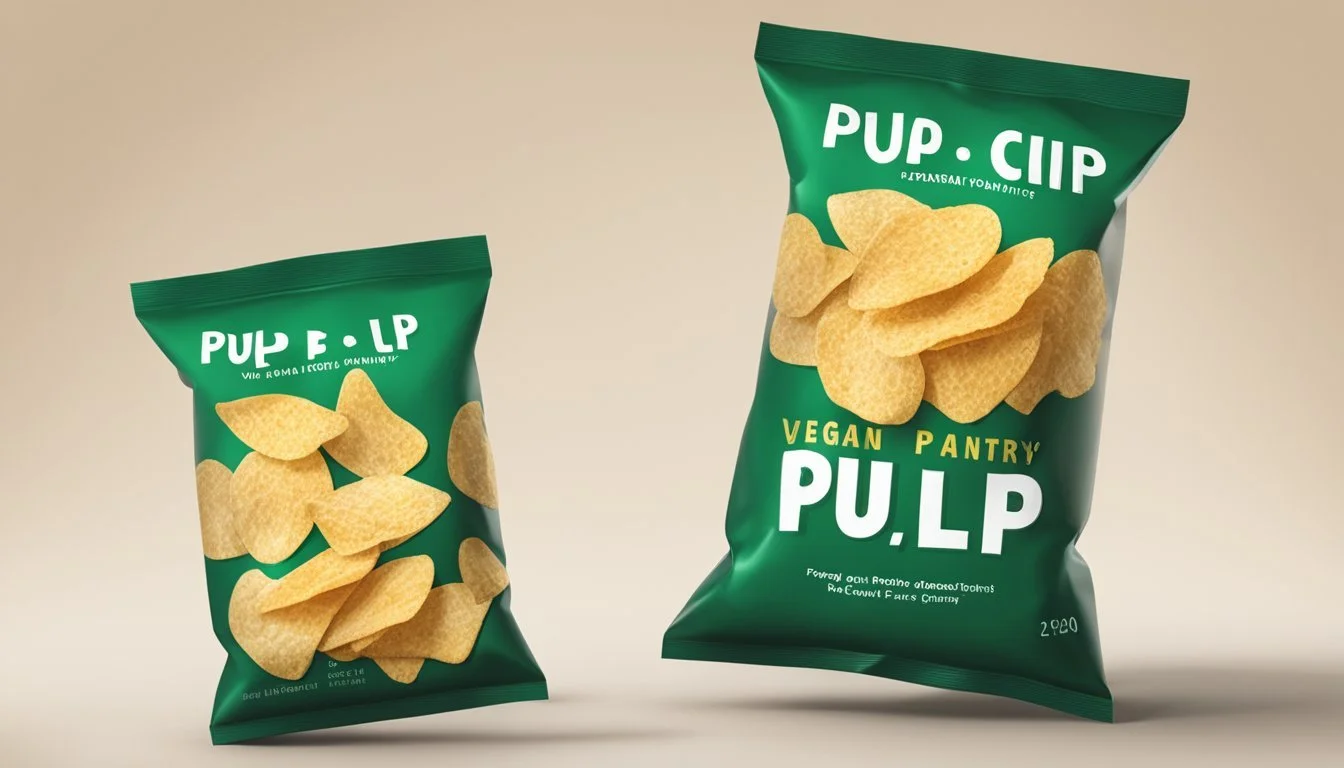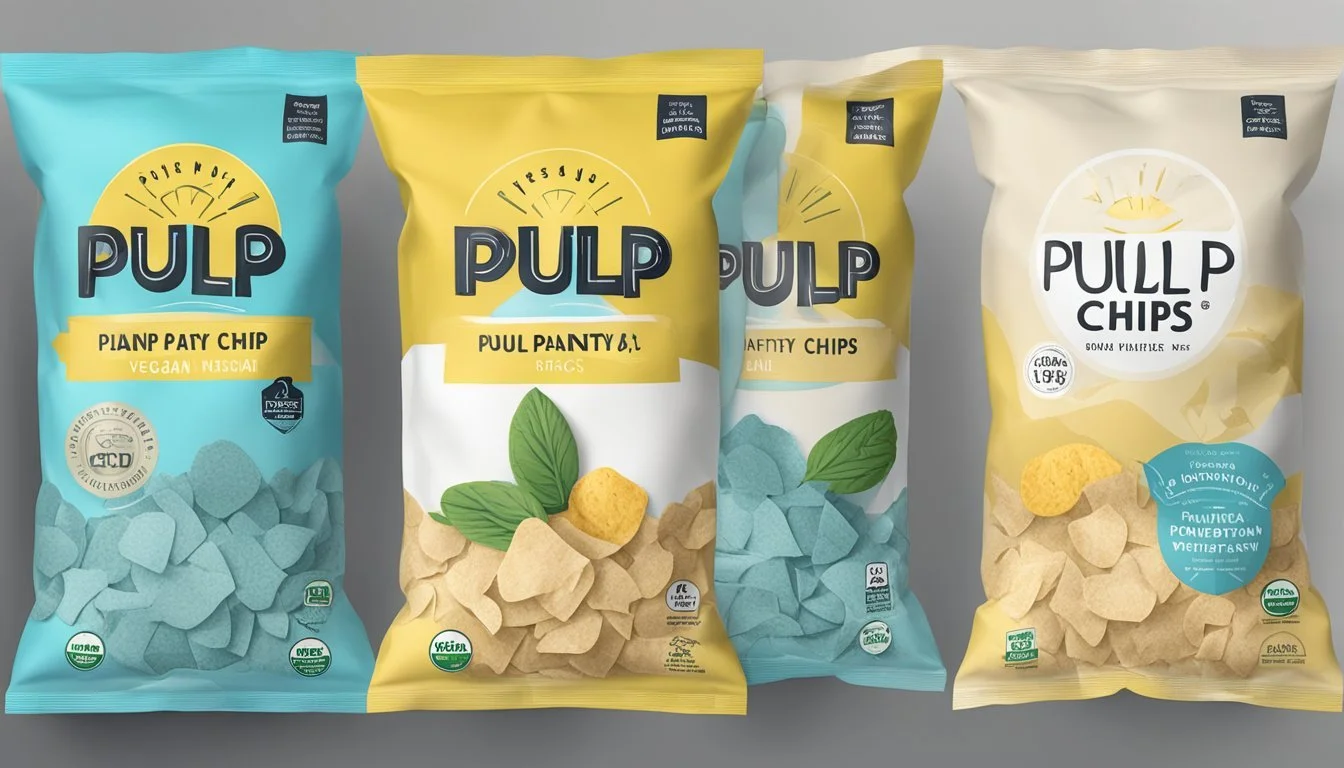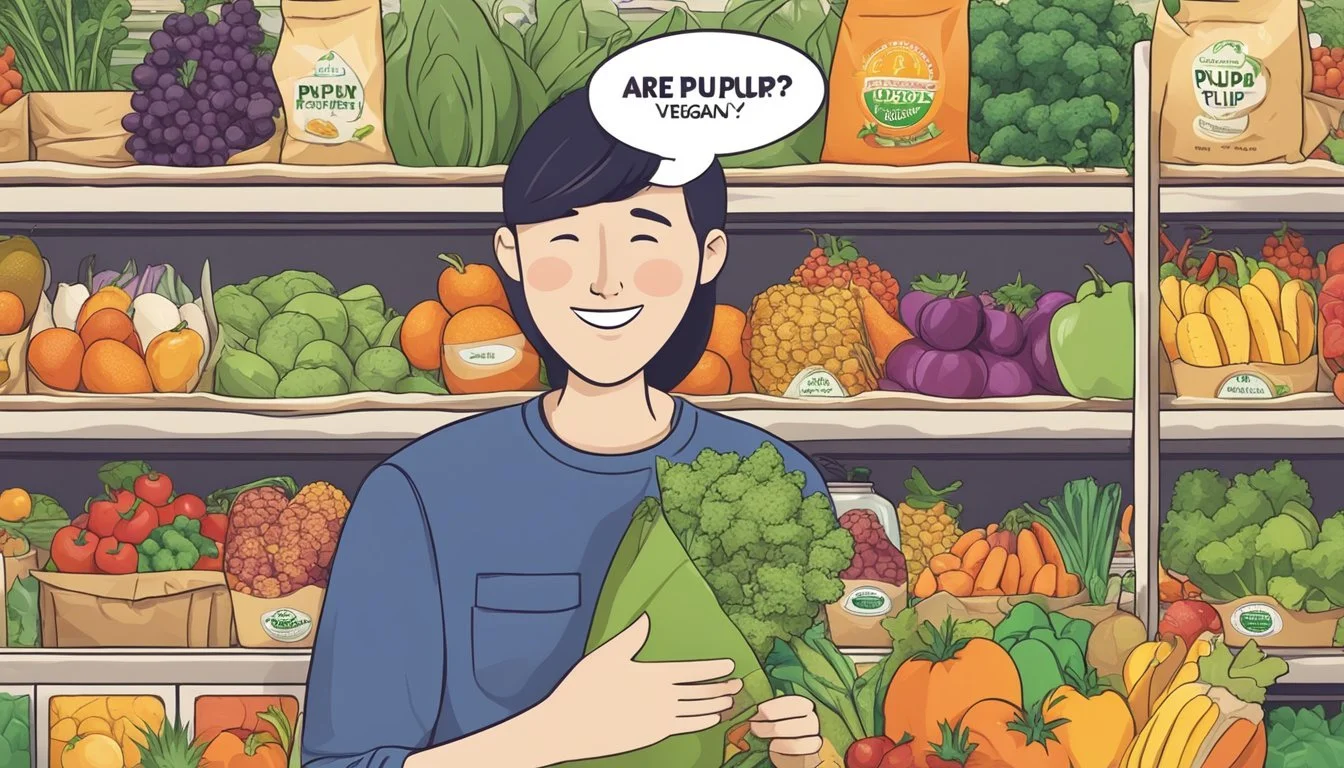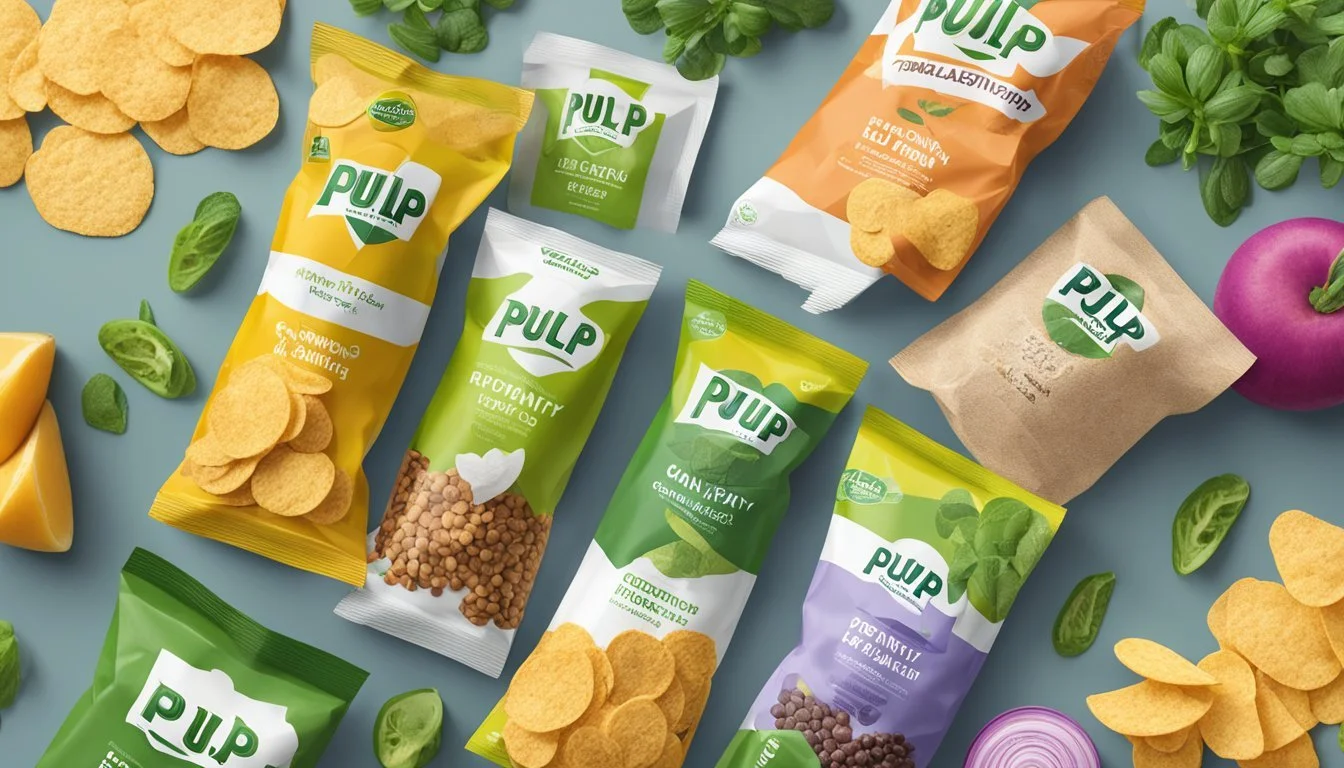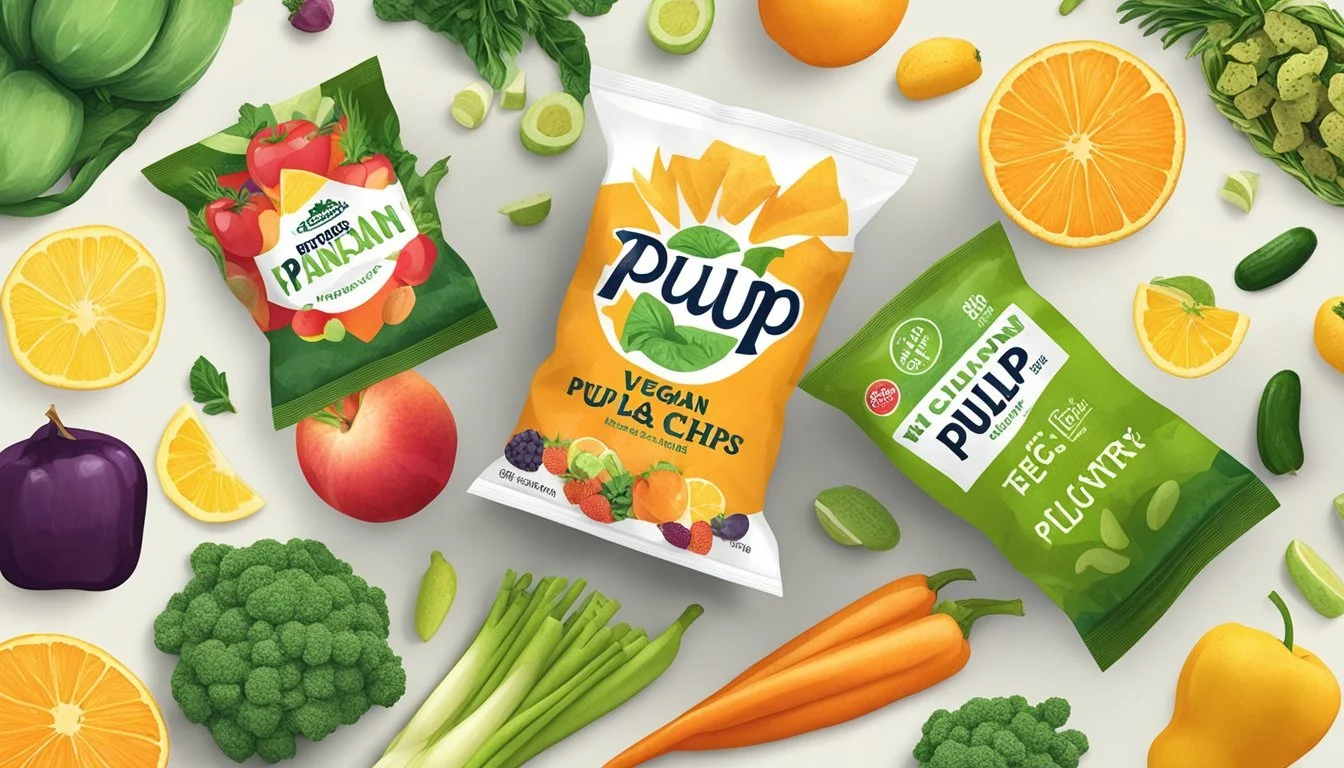Are Pulp Pantry Pulp Chips Vegan?
Unveiling the Ingredients and Dietary Profile
Pulp Pantry Pulp Chips are a confident answer to the question of whether snacking can be both sustainable and vegan-friendly. These chips are indeed vegan, ensuring that no animal products or byproducts are used in their creation. They demonstrate a commitment to plant-based eating, making them suitable for consumers who follow a strict vegan diet or those simply looking to incorporate more vegan snacks into their routine.
The chips are made primarily from vegetable pulp, the fibrous residue left over from juicing vegetables, which aligns with the increasing consumer interest in eco-friendly and sustainable food practices. Pulp Pantry taps into the trend of upcycling, transforming potential food waste into a nutrient-rich snack. Their dedication to vegan principles doesn't end with the ingredients themselves; it extends to the packaging, which is Certified Plastic Neutral, contributing to the brand's environmentally responsible ethos.
Pulp Pantry's inclusion of whole food ingredients like cassava and superfoods such as chia seeds further reinforces the health-conscious aspect of these snacks. In a market where vegan options are expanding, Pulp Pantry Pulp Chips stand out for their innovative use of upcycled materials and their fulfillment of vegan standards, making them a wise choice for anyone looking for a snack that is both kind to the planet and to animals.
Product Overview
Pulp Pantry's Pulp Chips present a unique twist on snacking by offering a product that is not only vegan but also aligns with various health and environmental considerations.
What Are Pulp Chips?
Pulp Chips are a brand of vegan snacks made by Pulp Pantry, specifically designed to provide a healthier alternative to traditional potato chips. They stand out because they are crafted from upcycled vegetable pulp—a byproduct of juice production—which is then combined with other ingredients to create a crisp and flavorful chip.
Core Ingredients of Pulp Pantry Chips
The primary ingredients that define Pulp Pantry Chips include:
Vegetables: The foundation of the chips, which provides dietary fiber and essential nutrients.
Cassava: A root vegetable that adds to the chips’ grain-free nature and crisp texture.
Chia Seeds: Superfoods that contribute to the chips' high fiber content.
Natural Seasonings: For creating the variety of unique flavors.
All of these components contribute to Pulp Chips' status as high in fiber, gluten-free, non-GMO, and grain-free. They are characterized by their use of upcycled and nutrient-rich ingredients, distinguishing them within the natural products market as both eco-friendly and health-conscious choices.
Vegan Credentials
Pulp Pantry Pulp Chips proudly cater to a vegan audience, ensuring their products are free from animal derivatives and in line with ethical vegan standards.
Vegan Certification Process
Pulp Pantry's commitment to veganism is reflected in their selection of ingredients that adhere strictly to vegan guidelines. Vegan certification involves rigorous oversight and inspection to guarantee that no animal products or by-products are used in manufacturing. The company ensures that from sourcing to production, the ingredients utilized, such as cassava, chia seeds, and upcycled vegetable pulp, comply with vegan principles.
Pulp Chip Varieties and Vegan Ingredients
The variety of flavors offered by Pulp Pantry includes kale, jalapeño lime, BBQ, salt and vinegar, and guacamole. Each flavor profile is crafted using vegan ingredients:
Kale: Featuring nutrient-rich kale, these chips offer a crunchy and healthful option.
Sea Salt: A classic taste of natural sea salt on upcycled vegetable chips.
Jalapeño Lime: Combining spicy jalapeño with a zesty lime twist, all within vegan confines.
BBQ: A smoky barbecue flavor achieved with a blend of vegan seasonings.
Salt and Vinegar: A tangy punch of vinegar balanced with salt, respecting the vegan palate.
Guacamole: Inspired by the flavors of guacamole, but entirely plant-based and free of dairy.
In addition to the aforementioned flavors, all chips maintain their vegan integrity by opting for all-natural and organic ingredients where possible. Additionally, their products are labeled gluten-free, catering to those with gluten sensitivities, and emphasizing the health-conscious approach the brand takes.
Nutritional Information
This section provides a detailed look into the nutritional aspects of Pulp Pantry Pulp Chips. It focuses on calorie content, nutritional composition, and how these chips compare to traditional snack options.
Caloric Content and Serving Size
Pulp Pantry Pulp Chips are designed to be a low-calorie snack option. Each serving typically contains around 100 calories, although specifics may vary slightly by flavor. The serving size is generally standardized, and the caloric content is calculated to encourage responsible snacking without the intake of empty calories.
Fiber and Nutrient Levels
One of the significant advantages of Pulp Pantry Pulp Chips is their high fiber content. With approximately 5 grams of dietary fiber per serving, these chips provide a substantial amount of the daily recommended fiber intake. They are not only rich in fiber but also include other nutrients that contribute to a balanced diet, without the addition of artificial flavors or colors.
Comparison with Traditional Snacks
Compared to traditional snacks, Pulp Pantry Pulp Chips stand out as a healthier alternative. Here's a brief comparison:
Nutrient Pulp Pantry Pulp Chips Traditional Snacks Calories Low (~100 per serving) Often higher Fiber High (5g per serving) Typically lower Empty Calories Minimal More common Carbs Lower net carbs Usually higher
They provide consumers with a snack that is low in empty calories and carbs, unlike many conventional options that may contribute to an increase in caloric intake without substantial nutritional benefit.
Ethical and Environmental Considerations
Pulp Pantry chips are more than a vegan snack; they stand at the intersection of ethical eating and environmental sustainability. By focusing on upcycling and minimizing environmental impact, Pulp Pantry positions itself as a forward-thinking brand in the sustainable food industry.
Combatting Food Waste with Upcycling
Food waste is a critical issue, with significant quantities of edible food ending up in landfills every year. Pulp Pantry chips address this by utilizing leftover pulp from juiced vegetables—a byproduct that often goes to waste. The company's innovative approach not only provides a guilt-free snacking option for consumers but also contributes to a more sustainable business model. They've reported saving over 174,165lb of nutritious vegetables since their market entry, demonstrating a commitment to food waste reduction.
Environmental Impact of Pulp Pantry's Process
Pulp Pantry's environmental dedication extends beyond just food waste. Their production processes aim to mitigate the environmental impact often associated with the food industry. By upcycling, the company actively works to reduce the volume of organic material in landfills, which can significantly decrease methane emissions—a potent greenhouse gas. This approach helps in promoting a more sustainable food system, aligning with the ethos of environmentally-conscious consumers looking for sustainable snack alternatives.
Company Background
In this section, we delve into the roots of Pulp Pantry, its strategic growth following an appearance on Shark Tank, and its current prominence in the snack food industry.
Founding Story and Mission
Pulp Pantry was established with a clear mission to innovate in the snack food market while significantly reducing food waste. The company was co-founded by Kaitlin Mogentale after she recognized an opportunity to upcycle juiced vegetables into nutritious snacks. The driving philosophy stems from the idea of transforming what would be waste from juicing into a product that supports healthy eating and environmental sustainability.
Pulp Pantry's Journey on Shark Tank
Intriguing the Sharks with its eco-friendly approach and flavorful chips, Pulp Pantry appeared on Season 13 of the highly-acclaimed show, Shark Tank. Lori Greiner and Mark Cuban, two of the show's prominent investors, showed interest in the brand's unique business model and its impressive sales. However, even though the founders sought an equity investment to scale their operations, the company didn't secure a deal on the show. Despite this, the exposure on national TV provided the brand significant attention, which had a positive impact on its growth trajectory.
Current Market Presence and Distribution
Since its national TV exposure, Pulp Pantry has expanded its market presence with a considerable footprint on the West Coast. The products are now readily available in around 600 stores, including notable chains like Whole Foods and Erewhon. They offer a range of flavors with an eye towards sustainability, using Certified Plastic Neutral packaging. Beyond grocery stores, the company has leveraged e-commerce to distribute their veggie chips directly to consumers across the United States, emphasizing their commitment to eco-friendly practices and health-conscious snacking.
Consumer Engagement
Consumer engagement for Pulp Pantry Pulp Chips reflects a growing interest in healthy, vegan snacks. Feedback from buyers and interactions on various online platforms are driving the conversation around this innovative product.
Customer Reviews and Testimonials
Customers consistently highlight Pulp Pantry Pulp Chips as a delicious alternative to traditional snacks. Reviews across retail sites such as Whole Foods Market praise the product's taste and nutritional value. The brand's commitment to sustainability often receives commendation, and the accolade of winning the NEXTY Award for Best New Salty Snack solidifies its quality in the eyes of consumers.
Engagement on Social Media Platforms
On platforms like Instagram and Facebook, Pulp Pantry leverages both organic and influencer engagement strategies. The brand has smartly utilized endorsements from celebrities such as Mindy Kaling to foster credibility and attract a wider audience. These strategic partnerships, coupled with engaging content and responsive communication, bolster the brand's presence and create a dynamic online community of health-conscious snackers.
Business Insights
Pulp Pantry has carved out a niche in the snack industry by leveraging upcycled vegetable pulp to manufacture its signature product: Pulp Chips. These vegan chips have shown a notable trajectory in terms of revenue and sales growth, which is attributable to their unique value proposition and sustained market interest.
Revenue and Sales Growth
Pulp Pantry's financial performance is characterized by a notable increase in sales, particularly after their pitch on the show "Shark Tank." The cost of manufacturing each bag of Pulp Chips stands at $1.70, which is then wholesaled at $3.24, reflecting a healthy margin. A retail price ranging between $4.99 to $5.49 further demonstrates the company's ability to command a competitive price in the market. The company's revenue is bolstered by a variety of chip flavors that maintain consumer interest and contribute to repeat purchases.
Investment Attraction and Equity Deals
Attracting investment has been a part of Pulp Pantry’s journey to escalate its business. The appearance on "Shark Tank" was a strategic move to obtain equity investment. Although specific details regarding valuation or equity stake taken by investors are not publicly disclosed, the exposure provided by the show has historically opened opportunities for emerging companies to secure beneficial equity deals. Businesses like Pulp Pantry, with a clear sustainable and health-conscious ethos, often appeal to investors seeking to support environmental and social governance (ESG) oriented startups.
Product Line Expansion
Pulp Pantry has actively diversified its veggie chip offerings, driven by consumer demand for both varied flavors and sustainable snack options. The introduction of new products and strategic partnerships has solidified their standing in the snack industry.
Introduction of New Flavors and Products
Pulp Pantry has innovatively extended its product line beyond the original flavors. They've developed chips that incorporate fresh vegetable juice pulp, such as kale, to create distinctive and unique flavors. New additions include Jalapeño Lime, BBQ, Salt and Vinegar, and Guacamole, appealing to a broad range of taste preferences. These chips maintain the brand's dedication to sustainability and are a sustainable product, utilizing tapioca flour to provide a crispy texture.
Strategic Partnerships and Collaborations
The growth of Pulp Pantry's product line has also been supported by strategic partnerships. The involvement of Barbara Corcoran, known from her role on 'Shark Tank', has been particularly noteworthy. These collaborations have helped Pulp Pantry to scale its distribution channels and to place its veggie chips in more stores across the country. They continue to underscore their commitment to creating snacks that are as good for the planet as they are for people, leveraging partnerships to amplify their message of sustainability.
Health and Diet
Pulp Pantry Pulp Chips offer a unique blend of dietary benefits catered to health-conscious individuals, supporting both general nutrition needs and specific dietary restrictions.
Contribution to a Balanced Diet
These chips are rich in dietary fiber due to their vegetable content and the inclusion of superfoods like chia seeds. A diet high in fiber contributes to digestive health and can help maintain a feeling of fullness. Unlike many snacks that rely on artificial flavors or added sugars, Pulp Pantry's product is made from organic ingredients, ensuring that consumers receive nutrients alongside their snacks. With their low-carb profile and great taste, Pulp Chips can complement a balanced diet without the guilt commonly associated with indulgent snacks.
Pulp Chips in Gluten-Free and Allergen-Friendly Diets
For individuals with gluten sensitivities or celiac disease, these chips provide a gluten-free option for snacking. Their grain-free formula also caters to those following specific dietary frameworks such as Paleo or other allergen-sensitive diets. The absence of common allergens and the commitment to non-GMO and organic ingredients position Pulp Chips as a preferred choice for individuals seeking allergen-friendly snacking options without compromising on flavor.
Innovation and Industry Impact
Pulp Pantry has positioned itself as a competitive force in the snack market by aligning innovation with sustainable business values. Their product, Pulp Chips, is not only unique in flavor but also in its nutrient-rich composition, appealing to consumers seeking healthier snack alternatives.
Recognition in Food Industry Awards
Pulp Pantry has garnered attention through prestigious accolades such as the Nexty Award for Best New Salty Snack. This commendation is given to products at the Natural Products Expo that exemplify innovation and potential impact on the food industry. Pulp Chips stood out due to their unique approach to utilizing upcycled ingredients, contributing to a more sustainable business model in the food sector.
Award: Nexty Award for Best New Salty Snack
Criteria: Innovation, Impact, Flavor
Pulp Pantry's Impact on the Snack Market
By entering the market with a strong value proposition, Pulp Pantry's Pulp Chips have made a noticeable impact. Their offerings include a variety of unique flavors, demonstrating that chips can be both delicious and made from sustainable, upcycled vegetables high in dietary fiber. This innovative approach has not only set new standards in terms of product composition but also has influenced the snack market towards more sustainable practices.
Dietary Fiber: Included, enhancing nutrition
Sustainability: Focus on upcycled ingredients
Flavors: Diverse and unique, appealing to a wide audience
Conclusion
Pulp Pantry Pulp Chips are explicitly designed to meet the dietary preferences and needs of individuals opting for vegan products. These chips do not contain any animal-based ingredients and are consistently marketed and labeled as vegan-friendly. In addition to being vegan, they stand out for being gluten-free and grain-free, appealing to a wide range of dietary restrictions.
The company's dedication to sustainability is evident through its use of upcycled vegetable pulp. This practice not only prevents food waste but also ensures that the chips maintain a high fiber content, contributing to their nutritional profile.
The ingredient composition of Pulp Pantry Pulp Chips is:
Upcycled vegetable pulp
Cassava
Superfoods like chia seeds
Their effort towards eco-friendliness extends to their packaging as well, with a commitment to Certified Plastic Neutral packaging. Consumers can enjoy these crispy snacks knowing they are making a choice that is beneficial for their health and the environment.
Here is a brief rundown of their attributes:
Vegan: No animal products used
Gluten-Free: Suitable for those with gluten sensitivities
Grain-Free: Ideal for grain-free diets
Fiber-Rich: High in dietary fiber
Eco-Friendly: Upcycled ingredients and environmentally conscious packaging
In sum, Pulp Pantry Pulp Chips cater to the vegan market effectively while also making strides in environmental conservation and health consciousness.

